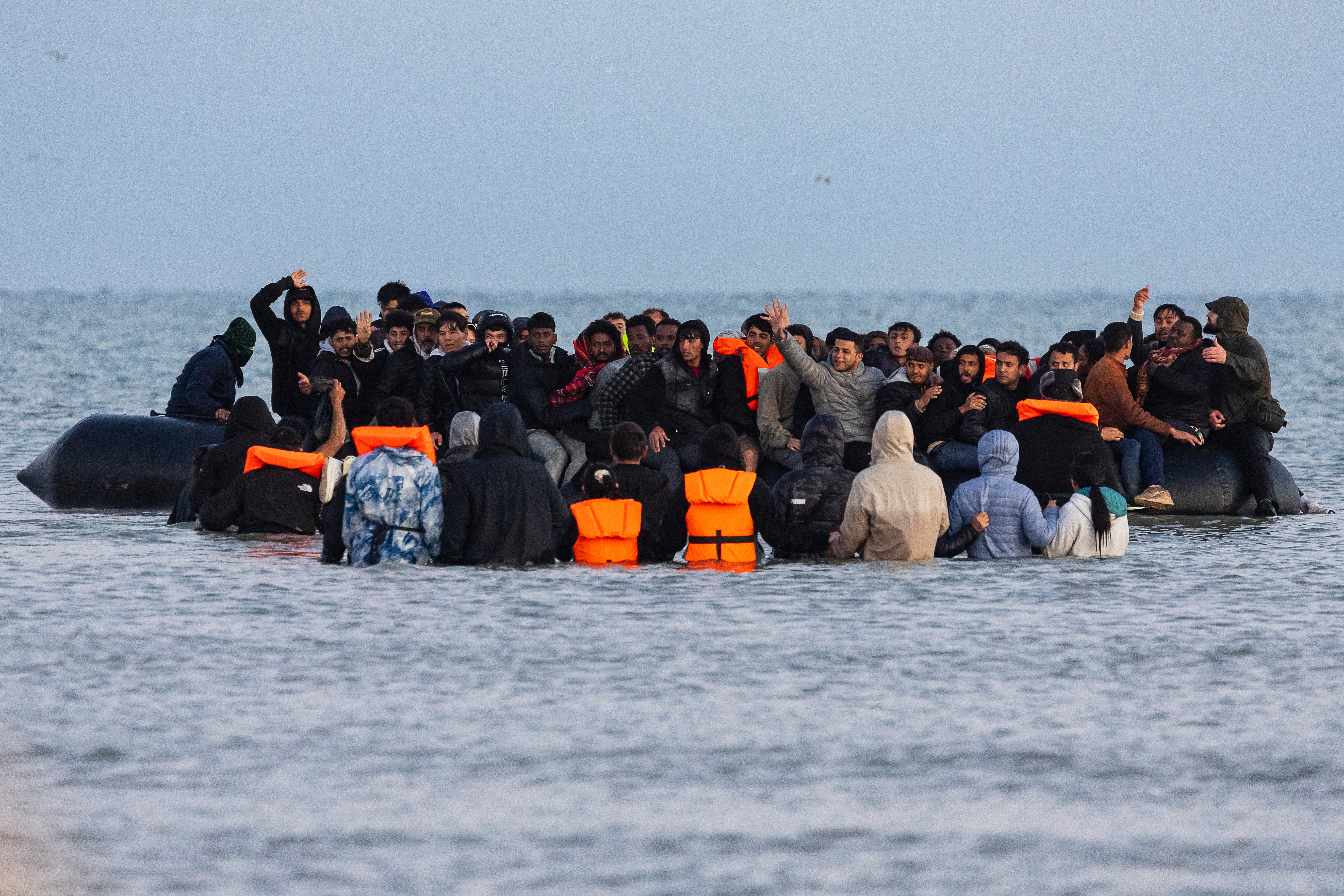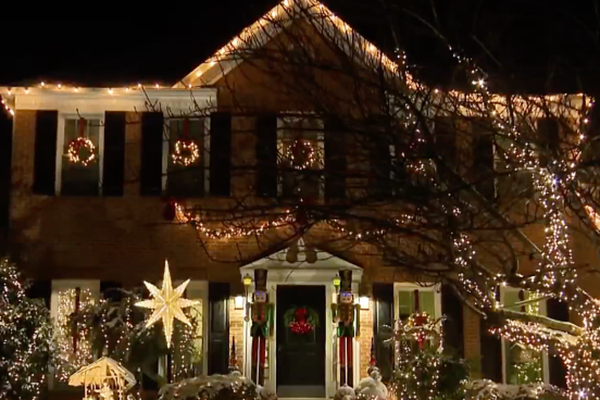The government has admitted that plans to move hundreds of asylum seekers into military barracks are part of a bid to appease the public but might not save the taxpayer any money.
The Home Office has confirmed that Crowborough Training Camp in East Sussex and Cameron Barracks in Inverness will be used temporarily to house a total of around 900 men as ministers scramble to find a way to end migrant hotels after huge controversy surrounding their use.
But Downing Street has signalled that spending on the plan could prove to be higher than housing migrants in hotels, just one day after MPs on an influential committee described the use of such hotels as “failed, chaotic and expensive”.
It came as refugee charities and organisations described the plans as “cruel and costly” and accused the government of “exchanging one failed approach with another”.
Small-boat migrants will start being housed in the military accommodations by the end of next month as Labour ramps up its bid to move tens of thousands of migrants out of hotels. Officials are also working with the Ministry of Defence to identify other disused sites that can be used in the coming months.

Asked if the costs of using military sites will be higher than using hotels, the prime minister’s official spokesperson said on Tuesday: “The costs will vary site by site, but our priorities are security and fairness.”
Pushed later on whether this meant ministers thought barracks were a better option even if costs were higher, the spokesperson said that the matter is “also a core issue of public confidence”. “The public is very clear it does not want asylum seekers housed in hotels, and neither does the government,” they added.
The spokesperson also suggested that hotel accommodation currently used to house asylum seekers was “luxury” – a suggestion which was condemned by refugee charity Care4Calais.
"What we don’t want is there to be an entitlement to luxury sites as we’ve seen in recent years. Military sites can provide proper security, health and wellbeing standards. And that’s what we’re intent on delivering”, the Downing Street official said.
Responding, Steve Smith, CEO of Care4Calais, said: "It's clear that the people who create policy are detached from reality. These are not 'luxury' hotels. Nothing screams 'luxury' like overcrowded rooms, inadequate food, filthy conditions, damp, rodents and bugs.”
On Monday, a parliamentary committee accused the Home Office of squandering billions of pounds on asylum accommodation as a result of incompetence.
But the committee also said that the use of military sites is likely to cost more than using hotels, and that it would present safety issues and legal risks.
Dame Karen Bradley, chair of the committee, cautioned ministers to “act carefully” when considering large sites. She added: “We have seen in the past that rushing in to sites that aren’t fit for purpose brings more problems.

“Before any asylum seekers are moved to these new sites, the government must make sure that the accommodation is of suitable quality and the support services are there”.
The defence minister Luke Pollard also appeared to suggest that the cost of moving people to the bases could be higher than housing them in hotels, but that the government needs to “reflect the public mood”, adding: “The public want to see those hotels close.”
Charities supporting refugees slammed the plans on Tuesday, with Jacob Burns at Médecins Sans Frontières saying it was “a pointlessly cruel and costly move that will do nothing to deter those seeking safety in the UK”.
Mr Burns pointed to conditions at former military base RAF Wethersfield, the Home Office’s largest asylum site, saying: “Our medical teams have seen first-hand the devastating impact of this approach at RAF Wethersfield in Essex, where prison-like conditions, barbed wire, and constant surveillance caused widespread and serious psychological distress.”
Enver Solomon, chief executive of the Refugee Council, said the government was “exchanging one failed approach with another”.
Steve Smith, CEO of Care4Calais, added: “How much evidence does the government need that camps are bad for people’s health and wellbeing? We’ve had Napier, Penally and Wethersfield, and hunger strikes, protests and attempted suicides have been a regular occurrence at all of them.”
Labour has pledged to end the use of hotels by 2029, but the prime minister has reportedly told ministers in private that he wants to end the practice within a year. Speaking on a visit to Lancashire on Tuesday, Sir Keir Starmer said he wants to see asylum hotels closed “as quickly as possible” and is “bearing down on this every day of the week”.
Mr Pollard told Sky News on Tuesday that ministers want to “go faster” in closing the hotels, and that the Ministry of Defence is “stepping up”.
He explained: “We are looking at the sites that we have available where we could house asylum seekers, allowing the Home Office to close more asylum hotels faster. It’s right that we step up and support our Home Office colleagues in this respect, because I don’t think anyone wants to see asylum hotels open.”
Both of the military sites were used to accommodate Afghan families evacuated during the withdrawal from Kabul in 2021. Those families were resettled elsewhere, and that process was completed earlier this year.
It is reported that the Scottish site will house around 300 people, while the site in Sussex will hold around 600.
Highland Council has raised concerns over “community cohesion” over the plans. In a joint statement from council convener Bill Lobban, leader Raymond Bremner and opposition leader Alasdair Christie, the trio said: “Inverness is a relatively small community but the potential impact locally and across the wider Highlands appears not to have been taken into consideration by the UK government.”
The MoD has previously been criticised for long-standing problems maintaining their homes for service personnel, some of which is also being used to house Afghan refugees, with issues with damp, mould, heating and hot water reported.
A 2024 parliamentary committee report concluded that the MoD had under-invested in its housing estate over decades, and contractors were often slow to make repairs. The government has not yet said what sort of accommodation asylum seekers will be housed in in Inverness and Wealden.

On Monday, housing secretary Steve Reed said the government was looking at “modular” buildings to ensure that the new sites can be ready in a short timeframe, as part of the plan to end the use of hotels “entirely”.
Pop-up cabins are already being used to expand capacity at former military base RAF Wethersfield, in Essex.
Plans had been floated to install cabins at RAF Scampton, in Lincolnshire, but this idea was scrapped when Labour came to power.
As of June this year, around 32,000 asylum seekers were being housed in hotels, down from a peak of more than 56,000 in 2023, but 2,500 more than at the same point last year.
A Home Office spokesperson said: “We are furious at the level of illegal migrants and asylum hotels. This government will close every asylum hotel. Work is well underway, with more suitable sites being brought forward to ease pressure on communities and cut asylum costs.”







